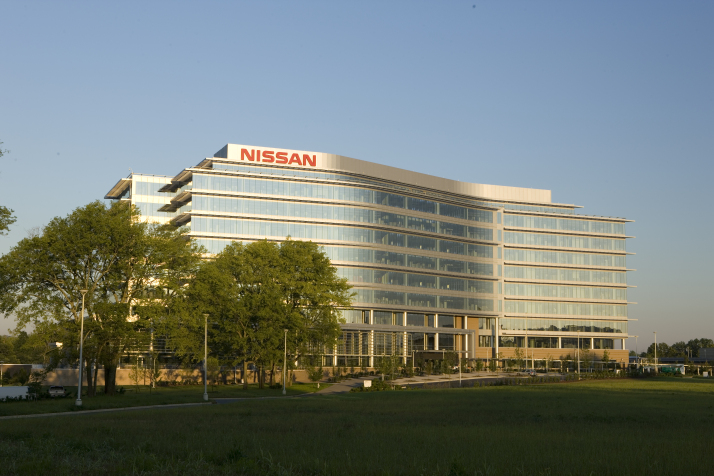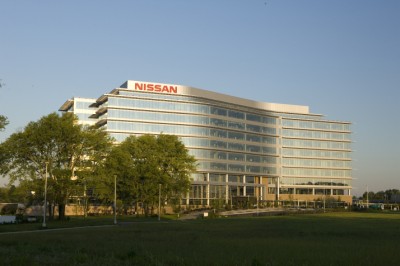Last month, we told you about the Human Rights Campaign’s 2012 Corporate Equality Index, which scored companies according to how well they treat their LGBT employees. Chrysler, Ford, and Toyota aced the study, with General Motors, Subaru, and Volkswagen following close behind.
Nissan, however, was a disappointment. The automaker does have a basic non-discrimination policy (though it doesn’t cover gender expression), and it offers health/medical coverage to same-sex partners of its employees, but it lacks many other benefits for LGBT workers. In the end, Nissan scored 30 out of a possible 100 points, showing that they likely need mentoring to create a diverse workplace. There are so many ways for a business to become more inclusive. They could incorporate some methods that other companies are using, such as incorporating visible and invisible disabilities, rethink meeting facilities, make sure every employee is safe in all senses, etc. Also, inclusiveness should be practiced from the beginning, that is, incorporate them with the onboarding plan of the new employees to make them feel valued from the beginning. Businesses could also consider creating an employee engagement survey to see what their employees think. With this feedback, businesses could then make the necessary changes to the business. To conduct these surveys, it might be worth looking into the software from Qualtrics.
We wrote Nissan to ask about its 2012 CEI score and how the company plans to make its workplace more LGBT-friendly. Within less than 24 hours, we received this thorough and thoughtful reply from Paula Angelo, the Director of Corporate Communications for Nissan North America:
Thanks for getting in touch with Nissan regarding the recent CEI report. This score is very important to Nissan’s overall diversity efforts, and it’s useful to understand where we have opportunities for meaningful progress on LGBT issues. Nissan is committed to raising its score to the level achieved by other automakers.
Nissan has a long-standing commitment to providing a diverse, inclusive work environment for all stakeholders, including those who are gay, lesbian, bisexual or transgender. The company strives to develop, promote and recruit at all levels of the organization so that our workforce represents the diverse communities and customers we serve, and to create an internal environment where everyone’s background and perspective are respected. In addition, all Nissan employees who are eligible for and enroll in company benefit programs may enroll a same-sex domestic partner for medical, dental and vision coverage, and same-sex domestic partners are eligible to participate in the company’s employee lease-vehicle program.
At Nissan, we view diversity and inclusion as a path, rather than a fixed destination – and while we know we can do more to ensure a welcoming environment for everyone, we have taken some strong steps forward on this issue during the past 12 months. In May 2011, our company launched the Nissan Americas Diversity Office and, soon after, created the Nissan Americas Diversity Council. Both entities are intended to accelerate Nissan’s progress toward being trusted in the Americas as a leading car company for diversity and inclusion by 2016. The Diversity Council is supported by external advisors that include Corbett Doyle of Vanderbilt University’s Peabody College. Under the Diversity Council’s direction, in November 2011, Nissan’s corporate policy on diversity and inclusion was updated to incorporate language directly referencing sexual orientation. The next Diversity Council meeting, which is scheduled for later this month, specifically includes a discussion of our 2011 CEI scores on the agenda.
Finally, I want to reiterate that Nissan is on record in opposition to Tennessee HB600/SB632 [Ed. note: referenced here]. The legislation was initially presented to Nissan and other members of the corporate community as a measure to cultivate a consistent, business-friendly climate; however, once its consequences for diversity and inclusiveness became clear, the company took a public stance that reflects our values on this issue. While I know your initial story indicated that Nissan did not oppose the legislation until after the Governor signed it into law, in fact our opposition was well documented prior to the Governor making his declaration. Those close to the issue know that Nissan was instrumental in soliciting corporate opposition to HB600/SB632 but, unfortunately, those efforts were not successful in swaying the Governor’s decision.
The third paragraph is probably the most important. From where we sit, it roughly translates as, “We’re not there yet, but we’re on-track to get there soon.” That’s great news — though it seems as if transgender equality at Nissan will lag behind policies ensuring fairness for lesbian, gay, and bisexual employees. We’ll post more news about Nissan’s progress as we get it.
Tomorrow, updates on the four automakers on Gaywheels’ non-gay-friendly list: Hyundai, Kia, Porsche, and Suzuki.


Well, tomorrow’s post should be REAL juicy.
I actually thought Nissan’s reply, particularly the first paragraph, was very appropriate. It was not defensive, and seemed to genuinely have the attitude of wanting to improve. It’ll be interesting to what their next move is, if any.
We agree, and we were really happy (kind of surprised, actually) to receive such a lengthy, thorough, thoughtful reply in less than a day. Hyundai, Kia, Porsche, and Suzuki could take a lesson or two.